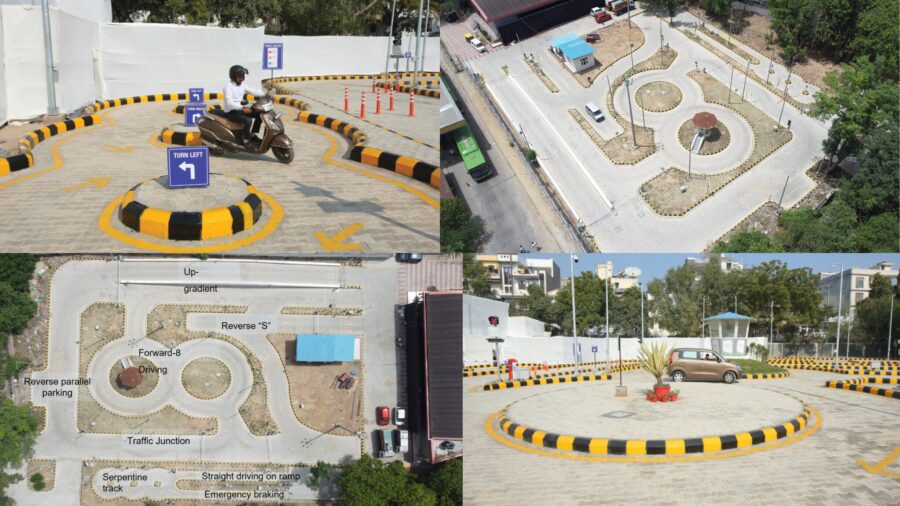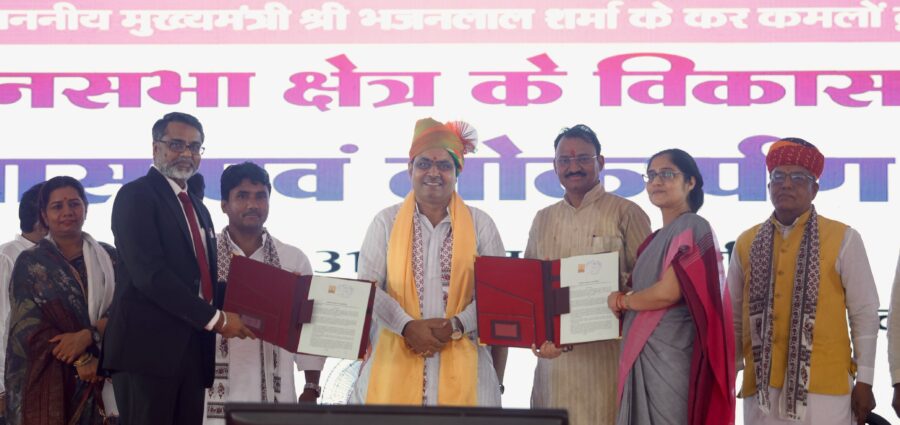Quick Take – Why This Matters
- 21 new automated test tracks spread across cities like Jaipur, Udaipur, Jodhpur, Kota, and Bikaner.
- Fair and transparent testing with HD cameras, RFID sensors, and real-time video analytics.
- Covers both Two-Wheelers and Light Motor Vehicles, ensuring a wide impact.
- Backed by Maruti Suzuki’s CSR efforts, aligned with Rajasthan’s 10-year Road Safety Action Plan.
Introduction
For years, the driving license system has faced criticism — some unprepared drivers manage to secure licenses, while truly capable applicants are left disheartened. With India witnessing a worrying rise in road accidents, the urgency for a foolproof, unbiased system has never been greater.
Taking a decisive step in this direction, Maruti Suzuki India Limited signed a Memorandum of Agreement (MoA) with the Transport Department, Government of Rajasthan to set up 21 automated driving test tracks across 20 cities. The MoA was signed between Smt. Shuchi Tyagi, Secretary & Transport Commissioner, Government of Rajasthan, and Mr. Tarun Agarwal, Senior Vice President (CSR), Maruti Suzuki India Limited.
Backed by the company’s CSR roadmap, the project aims to bring in a new era of licensing that is objective, transparent, and powered by advanced technology — exactly the kind of transformation Rajasthan’s roads have been waiting for.

A Modern Solution for an Old Problem
The traditional driving license test has often been criticized for leaving too much room for human error and judgment. Sometimes it’s leniency, sometimes inconsistency, and occasionally, sheer oversight. The result? Drivers on the road without the right skill set.
That’s exactly what the Automated Driving Test Tracks (ADTTs) are designed to fix. Each facility will use high-definition cameras, RFID sensors, and advanced IT systems to ensure that the evaluation is completely objective. No favoritism, no guesswork — just clear evidence of whether a driver meets the rules under the Central Motor Vehicle Regulations (CMVR).
What the Leaders Said
The announcement was made in the presence of Rajasthan Chief Minister Shri Bhajan Lal Sharma and Deputy CM & Transport Minister Dr. Prem Chand Bairwa.
Dr. Bairwa was quick to point out the significance: “This collaboration will make the licensing process transparent and will directly contribute to safer roads. It aligns perfectly with our 10-year Road Safety Action Plan,” he said.
From Maruti Suzuki’s side, Rahul Bharti, Senior Executive Officer, Corporate Affairs, emphasized the bigger picture: “Driving skill is critical for road safety. By eliminating human bias through technology, we’re ensuring that only capable drivers earn their licenses.”
Maruti Suzuki’s Larger Road Safety Drive
This isn’t Maruti Suzuki’s first foray into automated testing. Over the years, the company has been steadily rolling out ADTTs in several states. Before Rajasthan’s inclusion, there were 45 such tracks operational — 17 in Uttar Pradesh, 14 in Delhi, 7 in Bihar, 4 in Uttarakhand, 2 in Haryana, and 1 in Jammu. With Rajasthan’s 21 new tracks, the total will jump to 66 nationwide.
But the efforts don’t stop there. Maruti Suzuki has also set up:
- 8 Institutes of Driving and Traffic Research (IDTRs) for structured training.
- 23 Road Safety Knowledge Centres (RSKCs) to spread awareness.
- Integrated Traffic Safety Management Systems (ITMS) to help police monitor traffic in real-time.
- First Responder training programs for commercial drivers, equipping them to handle emergencies.
All of this falls under the 5Es of Road Safety framework (Education, Evaluation, Enforcement, Engineering, Emergency Care) that Maruti Suzuki follows under its CSR policy. The idea is clear — road safety isn’t just about cars, it’s about the people behind the wheel and the systems that guide them.

Why Rajasthan Will Benefit
Rajasthan’s mix of busy cities and vast highways makes it especially vulnerable to road mishaps. From Jaipur’s congested lanes to Udaipur’s tourist-heavy traffic and long desert highways, the challenges vary but are equally demanding.
By automating license tests, the state can expect:
- Fewer unqualified drivers slipping through the system.
- Improved trust in how licenses are granted.
- Safer roads as only skilled drivers make it onto them.
It’s a small but critical step toward reducing the alarming accident rates that plague the state.
Conclusion
The tie-up between Maruti Suzuki and the Rajasthan Government is more than a CSR project — it’s a game-changer for road safety. With 21 automated driving test tracks on the way, Rajasthan is setting an example for how technology can remove human error and bias from something as crucial as licensing.
At the end of the day, safer drivers mean safer roads. And with initiatives like these, India inches closer to making its roads not just faster, but also fairer and safer for everyone.

